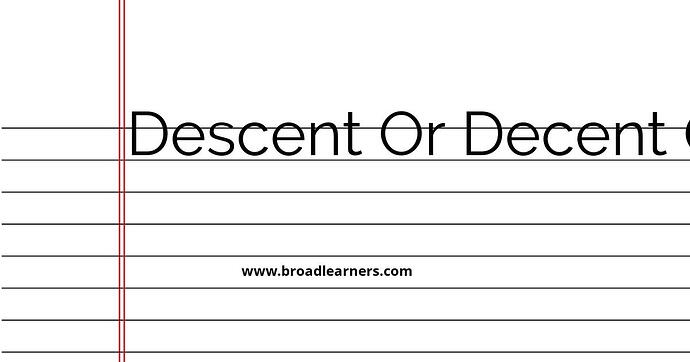'Descent', 'decent', and 'descent' are commonly confused words in English grammar. Understanding the difference between 'descent', 'decent', and 'descent' is important to use them correctly in written and spoken English.
'Descent' is a noun that refers to the act of moving downward, a decline, or a family's lineage or ancestry. It can also refer to the action of descending from a higher place to a lower place.
'Decent' is an adjective that means conforming to accepted standards of morality or behavior, or of good quality but not excellent.
'Descent' is a noun that refers to the act or process of moving downward or a downward slope.
Let's take a closer look at the meanings and usage of 'descent', 'decent', and 'descent'.
| 'Descent' | 'Decent' | 'Descent' |
|---|---|---|
| The word 'descent' is a noun that refers to the act of moving downward, a decline, or a family's lineage or ancestry. | The word 'decent' is an adjective that means conforming to accepted standards of morality or behavior, or of good quality but not excellent. | The word 'descent' is a noun that refers to the act or process of moving downward or a downward slope. |
|
|
|
To remember the difference between 'descent', 'decent', and 'descent', it can be helpful to think of 'descent' as related to movement downward, 'decent' as related to acceptable standards, and 'descent' as related to downward slopes or the act of moving downward.
Here are some examples of correct usage:
- The descent into the cave was steep and treacherous.
- He always dresses in a decent manner.
- Their family can trace their descent back to the Mayflower.
Remembering the correct usage of 'descent', 'decent', and 'descent' will improve your grammar and communication skills.
